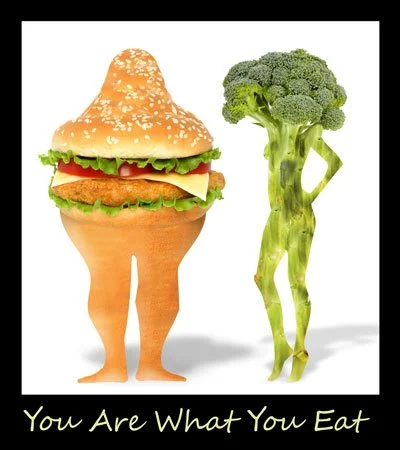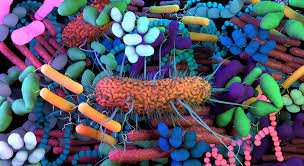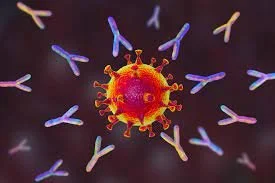WE ARE WHAT EAT? OR ARE WE REALLY WHAT WE DIGEST?
That old saying “we are what we eat” is so true but there are other factors at play here. We are also what we absorb and then hopefully eliminate.
Digestion is a critical process that enables your body to absorb the energy and nutrients it needs from the foods you eat. A robust digestive system is the key to energy, healthy weight, a strong microbiome and immune system.
Let's take a closer look at how to optimize digestion. Your digestive system involves a collection of organs, starting with the mouth and ending…well you know where it ends. In between, many systems and processes occur, which affect the esophagus, the stomach, and the small and large intestines.
When you eat, food is moved from the mouth down the digestive tract, broken down and absorbed. Trillions of bacteria and other microbes in the digestive tract, known as the microbiome, also assist with this process. Let’s pause here to discuss what your microbiome is; Your gut consists of a collection of bacteria, yeast, viruses and other tiny organisms called microorganisms, or microbes. Together, they comprise your microbiome, which acts almost as its own ecosystem. These microorganisms are present from birth, and you may gain or lose hundreds of species throughout your life. A healthy microbiome is home to the both the optimal type and level of each microorganism that work together -- and with you -- to thrive.
Each microorganism plays a different, important role in digestion. Generally, they break down the food you eat into usable pieces and help you absorb and process essential nutrients to keep your body running optimally.
Nutrients are extracted from food, and energy from calories is released into your cells to fuel the body and keep it functioning. Whatever is not needed or not absorbed during the digestive process is removed from the body via urine and bowel movements. Daily bowel movements are a crucial factor in proper digestion since it helps REMOVE TOXINS. Having irregular bowel movements can lead to the reabsorption of toxins and potentially cause further health problems.
What Leads to Poor Digestion?
Because the digestive system is so complex, there are many things that can go wrong. These issues can lead to symptoms of an unhealthy gut, such as abdominal pain, frequent gas, bloating, belching, heartburn, irregular bowel movements, loose stool, nausea or vomiting.
Common digestive offenders that may be causing this includes:
Imbalance of gut bacteria. Your gut bacteria is within your body's microbiome. Having an imbalance is known as dysbiosis. This interferes with proper digestion and contributes to unpleasant symptoms.
Weak digestion. Digestive enzymes and stomach acid helps break down the food you eat. Low or weakened levels can lead to improper breakdown and signs like gas and bloating.
Stress. Stress negatively affects the body in many ways, including altering your gut microbiome.
Poor diet. A poor diet that is high in refined carbohydrates, like sugar, and low in fiber can lead to dysbiosis. Imbalances such as these can trigger an immune response that can lead to food allergies or sensitivities.
How To Optimize Digestion
There are many steps you can take to improve and optimize your digestion but one of the keys is movement; MOTION IS THE POTION!!!
MOTION IS THE POTION
Movement after eating. Being active is linked to better digestion overall. Participating in light physical activity, such as walking, shortly after eating may help with gas passage and reduce bloating and other negative digestive symptoms.
Allow for digestive rest. Waiting three to five hours between meals helps the stomach empty and allows the migrating motor complex to complete an entire cycle. This process of short term fasting helps the digestive system work more efficiently. Intermittent fasting can help reduce bloating and other digestive issues. Eating too often can also interfere with digestion by adding undigested food to partially digestive food and upset the process. One easy way to intermittent fast is to quit eating by 7:00 pm and not have your first meal until 8:00 am the next morning. This allows your body to fast for 13 hours. Another option is from 7:00 pm to 11:00 am giving your digestive system 16 hours of rest. Fasting works differently for different people depending on blood sugar levels etc. It’s important to have your natural healthcare provider recommend the best plan for your individual needs.
Eat a whole food diet. Consuming foods in their most natural state and making this the bulk of your diet is ideal. Include lean proteins, like fish and chicken breasts, and a variety of high-fiber plant foods, like beans, legumes, gluten-free grains like wild rice, quinoa or oats, and brightly colored fruits and vegetables. Highly processed foods, alcohol and caffeine, should all be limited for the best digestion. It is important to note that the only alcoholic drink that is not totally disruptive for your gut is red wine. The polyphenols can help increase good bacteria and not disrupt your microbiome. Having said this however, everything in moderation, and more than two-5 oz. glasses of red wine a few times a week will cause all sorts of other problems. A topic for another day.
Meal size and timing. Dinner tends to be the largest meal for most, sometimes followed by additional late-night snacking. Eating too close to bed doesn't allow digestion to complete, which can impact overnight repair, so try to aim for at least a 2-hour gap between dinner and bedtime. Digestion is also most robust between 10 a.m. and 2 p.m. so having lunch as your largest meal can help improve digestion.
Natural nutrition supplement support. Include things like ginger, tumeric, and fennel just to mention a few. These are spices widely used as digestive aids and soothing to the gut. Also you can add digestive enzymes that can assist with the breakdown of food and absorption of nutrients.
Probiotics. Probiotics help balance the gut microbiome by introducing beneficial bacteria to support digestion. Probiotics can be taken long-term and have many health benefits.
Our digestive process becomes sluggish due to many factors as we age; depletion of microbiome and digestive enzymes being the most common. Dehydration can cause many problems as well. It is crucial to take good care of our bodies through nutrition and exercise as we age to live our best lives!!!





